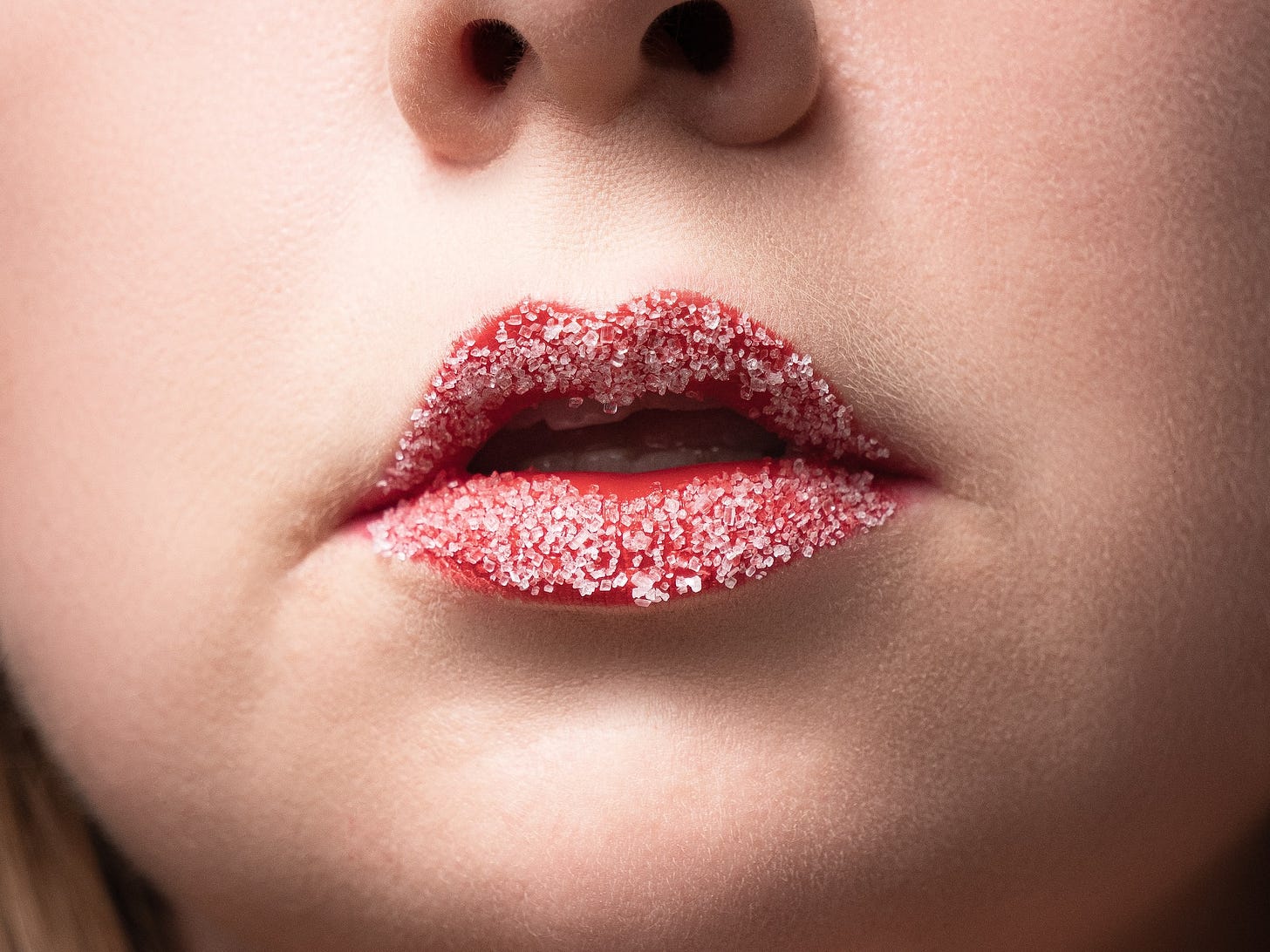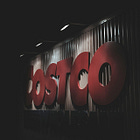
Last weekend, I mingled with many more dietitians than usual, both at the Weight Inclusive Nutrition and Dietetics Fall Conference, and at Diversify Dietetics' FNCE party1 — and the question I heard most frequently was: What do you think about the Washington Post article?
I knew the Washington Post was going to be writing something spicy about dietitians before the article came out, because the Academy of Nutrition and Dietetics (AND or the Academy) told me. I'm not even a member anymore, but I still received an ominous email two days before the article came out, warning me that a "Post reporter [who] has targeted registered dietitian nutritionists before" had contacted them for an interview about dietitians who partner with food and supplement companies.
Two days later, the article came out, a joint investigation with a new nonprofit, a public-health-focused newsroom called The Examination, which has a major focus on Big Food. You should read it if you haven't already: The food industry pays 'influencer’ dietitians to shape your eating habits.
If you haven't read it, or need a refresher, here is a quick recap: Reporters examined the Instagram and TikTok accounts of 68 dietitian influencers (defined as those with at least 10,000 followers) and reviewed about a year's worth of posts, looking to see if influencers clearly disclosed when they were being paid to post content, and who was paying them. Not surprisingly, they found that many sponsored posts were not explicitly disclosed — missing information about which companies had paid for the posts, or with disclosures buried deep in the captions.
The article looks closely at one campaign in particular, paid for by the American Beverage Association, the trade and lobbying association that represents Coca-Cola, PepsiCo, and other corporations. The association organized a campaign to push back against the World Health Organization's July 2023 report that calls aspartame "possibly carcinogenic to humans." Although the report also recommends no change to the current acceptable daily intake — which is the equivalent of about 9 to 14 cans of diet soda per day for most adults — and says its conclusions are based on "limited evidence," this was still very bad news for diet soda manufacturers and others who make money off of aspartame-sweetened food and beverages. "Possible carcinogen" morphs quickly into "Did you hear drinking Diet Coke will give you cancer??" in today's breathless nutrition environment, which has little space for nuance.
So the American Beverage Association enlisted the help of about a dozen influencers, almost all of them dietitians, for their #safetyofaspartame campaign. Out of 35 videos they created, all disclosed that they were paid partnerships, but only 11 explicitly named the American Beverage Association as that partner, the investigation found. None of the influencers from the campaign provided comments for the article.
So…what do I think about this?
The Washington Post Made Some Big Mistakes
I do appreciate that the Washington Post has consistently covered some of the missteps and major problems in the dietetics field, because we need it!2 The Academy is notoriously unresponsive or slow to respond to criticisms from member dietitians, but airing our dirty laundry in national publications does seem to get Academy leaders' attention.
But it is extremely unfortunate that the journalists chose to write this piece from a perspective firmly rooted in diet culture, clutching its pearls at the thought that a dietitian would say it is OK to eat sugar! Can you imagine! For example:
[One dietitian]3 posted a video on Instagram where she added a lollipop to a dinner plate. She told parents the strategy will “prevent sweets obsession” and help kids develop healthier relationships with food. In another Instagram video, she told parents they can make Halloween less stressful by allowing kids to eat as much candy as they want when they’re done trick-or-treating.
“This helps decrease the stash and makes it less of a ‘big deal,’” she wrote in the text alongside the video. “Yes, they may barf. That’s a great life lesson.”
This is evidence-based advice. This is exactly what I and many dietitians with kids do, because we know — based on scientific research and personal experience — that creating a good-bad binary around food and constantly restricting sugar makes kids more fixated on eating sweets, not less, and can damage their relationships with food in the long run.
The article takes a similar tone toward another dietitian who has worked with Ajinomoto, the MSG manufacturer:
[A] dietitian with more than 265,000 followers on Instagram eats pizza, French fries and ice cream in her social media videos to illustrate that no foods should be stigmatized. [The dietitian], who works for the New York City Department of Health and Mental Hygiene, describes herself as “pro-processed foods.”
A dietitian eating pizza on Instagram in order to dispel the shame around eating food that is inexpensive, convenient, and readily available? The horror!
The problem with taking this approach is that it immediately discredits the authors to any person who operates from a weight-inclusive, anti-diet perspective, which means losing the buy-in of a huge group of dietitians who are dissatisfied with the current state of the field. It also distracts from what I think is the important point of the article: the food industry is using dietitians to push their agenda and messaging. Not surprisingly, most of the reactions to the article that I have heard have focused on the sugar-shaming, not the sticky issues around sponsorships.
Another fundamental mistake was focusing on the dietitian influencers themselves, rather than the larger institutions and systems that make accepting sponsorships from the food industry appealing to entrepreneur RDs seeking financial stability.
of summed it up brilliantly in a recent newsletter Kvetch Sesh:What I found deeply troubling about this article was the myopic focus on the business of “influencer dietitians” without acknowledging the fact that dietitians are people navigating the same capitalist hellscape as the rest of us. They have little power to change industry standards or thwart the actions of multibillion-dollar global conglomerates. While dietitians are open to critique, the burden of shame and skepticism should be placed on the industry and systems that have normalized these activities rather than individuals trying to survive within them.
Read her full take here:
It's so easy to whip people into a frenzy over influencers, especially when they are a group of young, attractive women, and it feels like the journalists really took the easy, more clickable, and ultimately less impactful route by centering the dietitians and their individual choices.
The Academy Also Messed Up
About two weeks after publication, the Academy of Nutrition and Dietetics emailed their response to the article to members and former members. The basic message was: This was only seven dietitians, who don't represent the 90 percent of dietitians that work in clinical care. Also we don't have a food industry sponsorship problem. We have a Code of Ethics and yes, we take money from the food and beverage industry, but not THAT much money.
Must have felt lonely for those seven dietitians, targeted by journalists and then left out in the cold by their professional organization.
Kate Burt, an academic dietitian who you should be following, made a Reel summarizing why this response was a mistake. To rebuild trust, both nutrition professionals and the public need more transparency and accountability from the Academy, not continued denial and deflection.
Marion Nestle describes the Academy's response as "take no responsibility, attack, and deny." In other words, business as usual.
What We Need to Talk About
When I became a full-time dietetics student and joined the Academy, I was surprised when I immediately began to receive mail from big food companies, offering information or freebies for my (nonexistent) clients. Turns out the Academy and the Commission on Dietetic Registration was making my information available for sale, for whoever could afford to reach a large network of nutrition students and professionals.
In my dietetic classes, we spent a lot of time talking about how to change the behaviors of individuals, but not examining the larger food system, our future place in it as dietitians, or how to navigate the ethical quandaries that might come up, particularly in a profession where the pay is low and food companies are eager to buy the credibility our credentials can lend to a product.
Yes, we have a Code of Ethics, but we receive no concrete guidance on how to apply it. In this case, the applicable segment of the code is Part 2a:
Nutrition and dietetics practitioners shall: Disclose any conflicts of interest, including any financial interests in products or services that are recommended. Refrain from accepting gifts or services which potentially influence or which may give the appearance of influencing professional judgment.
Clearly, it is a problem that the majority of the dietitian influencers in the #safetyofaspartame campaign did not think it was necessary to disclose the American Beverage Association as the sponsoring partner. Why didn't they? Likely because it would have undermined their credibility with their followers, even though the information they were providing was scientifically sound and the overall message — don't be scared of fear mongering nutrition headlines — was aligned with their anti-diet values.
What do you do in that murky ethical zone? I think it is ultimately personal for every nutrition professional, but we need more tools to make that decision. I think we need more transparency around how to make values-aligned business decisions. I think we need more dietetic education around the environmental, public health, and human rights impacts of the food industry, and a better understanding of how food and beverage companies manipulate public discourse around their products, for their bottom line. I think we need to find a way to destigmatize food and drink choices made by individuals while holding food and beverage corporations accountable for the ways they disproportionately harm the health of communities of color.
And if you find yourself in that murky zone, I recommend this take on the WaPo article and especially the transparent guidance on working with brands from dietitian Abbey Sharp.
Really the only winner in all of this is the American Beverage Association, the Canadian Sugar Institute (also mentioned in the article), and other food and beverage corporations and trade associations, who are likely delighted to see that everyone is mad at the dietitian influencers or the journalists who wrote the article — and almost no one is questioning their powerful role in this whole debate.
Comments are open for all on this post! What do you think about all this?
Like this? Read this next:
Both so fun! It was amazing to speak to a room full of like-minded people at the WIND conference, and it was truly MAGICAL to be in a room full of BIPOC dietitians at the Diversify Dietetics event. Highly recommend both, if you ever have the chance.
I decided not to include the names of the individual dietitians in this piece because I don't want to further support the public stoning.










“A dietitian eating pizza on Instagram in order to dispel the shame around eating food that is inexpensive, convenient, and readily available? The horror!”
I’d add that only outside Italy (where incidentally, pizza is born and consumed aplenty), pizza is considered a bad, unhealthy dish. I think that its the way “foreigners” shape this dish (similarly at the pasta-based concoctions) that makes it unhealthy. A grains base, topped with vegetables (yes, tomato is a fruit all right) and some scarce protein is a super healthy food.
Thanks for the article. Having been a food marketing attorney for many years (recently retired), I wonder whether the influencers’ disclosures were based on the FTC’s disclosure requirements, which don’t require the source of the funding relationship, just that one exists. When I think about the work we did at my employer companies, our influencer agreements required only a “sponsored” or “advertisement” disclosure. Perhaps educating legal partners who are trying to make sure influencer content is compliant would help? I was unaware there were requirements on the nutrition professionals’ side.